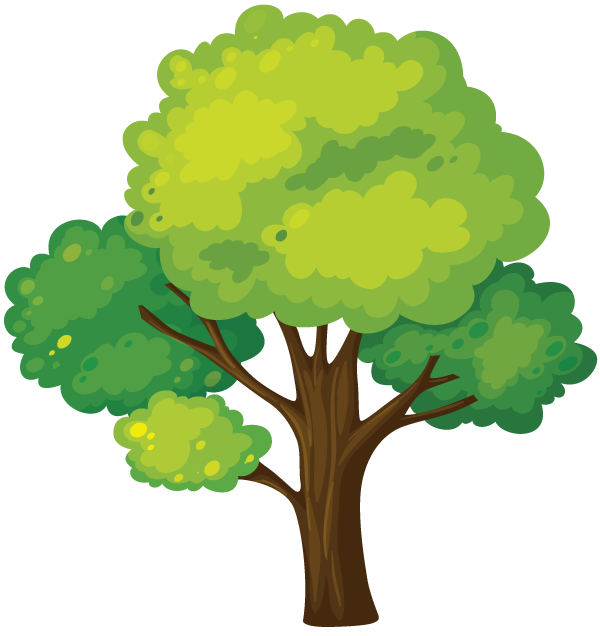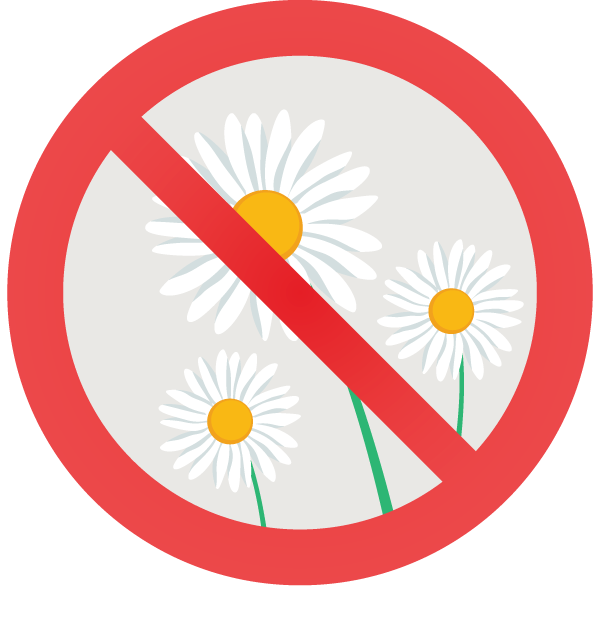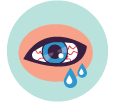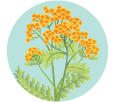Allergies
Seasonal allergies can impact everything from energy level to sinus congestion and for many patients, allergy season is a dreaded annual ritual. Licensed naturopathic doctors address seasonal allergies by treating the underlying causes of allergic reaction and by supporting the body’s inherent healing capacity. Main approaches used include therapeutic nutrition, botanical medicine, and lifestyle modification. In many areas spring seasonal allergies can begin in February and last until the early summer.

Definition of an Allergy
An allergy occurs when the immune system reacts to an allergen as if it were a dangerous bacteria or virus. An “allergen” is typically defined as a “usually harmless substance capable of triggering a response that starts in the immune system and results in an allergic reaction.”
During an allergic response, the body immediately begins producing “immunoglobulin E” antibodies, or IgE. These specific antibodies release chemicals like histamine that are designed to protect the body from allergens like pollen, mold, and dust. This histamine production is what ultimately leads to the annoying symptoms that plague us during pollen season: itchy eyes, runny nose, coughing, and more.
An allergy occurs when the immune system reacts to an allergen as if it were a dangerous bacteria or virus.
Seasonal allergies are typically plant-based. In the United States, spring allergies are usually associated with tree pollen, which can be combined with mold in a rainy season. Tropical climates often have grass pollen that can cause symptoms, while fall allergies have a strong association with ragweed blooms.
Three-quarters of people who are allergic to pollen are also allergic to ragweed, a plant that grows in the United States, especially in Eastern and Midwestern regions. Symptoms of a ragweed allergy are similar to pollen allergies with sneezing, stuffy or runny nose, itchy eyes, trouble sleeping.

What is Oral Allergy Syndrome?
Those with allergies to ragweed may also be sensitive to some foods like cantaloupe, bananas, chamomile tea, sunflower seeds, zucchini, and cucumbers can also cause symptoms in a phenomenon called oral allergy syndrome. There is a similar connection between birch allergies and stone fruit like apricots, cherries, peaches, plums – anything with a hard seed or pit. These symptoms can also be affected by seasonal pollen in the air and plants.

What are Some Ways That Naturopathic Medicine Can Help During Allergy Season?
A naturopathic doctor will ask you in-depth questions about your diet and digestive system. Understanding the role of the microbiome in helping balance immune function is essential. The research underscores the idea that a basic probiotic supplement along with the addition of fermented and cultured food helps create a more robust and diverse microbiome, which in turn helps to calm immune system response and reduce allergy symptoms. Supporting gut function is vital and increasing beneficial bacteria is key.
Several herbs act as natural antihistamines and can help reduce allergy symptoms without attendant side effects often associated with OTC and prescription medication. A few of the most studied herbs recommended by naturopathic doctors include:

Nettles (Urtica dioca) taken through tea or tincture form has been shown to inhibit pro-inflammatory pathways associated with allergic rhinitis.

Eyebright (Euphrasia officinalis) studied and shown efficacy when allergy symptoms are most present in the form of irritation in the eyes.

Butterbur (Petasites officinalis) and yarrow (Achillea millefolium) are also effective, natural antihistamines.
There are a number of nutritional supplements that offer springtime allergy relief.

Quercetin, found in onions, shallots, and citrus fruits, is a natural antioxidant with several anti-allergy properties including inhibition of histamine release and decrease of pro-inflammatory messengers.

NAC (N-acetyl cysteine) is an antioxidant that supports the breaking up of mucus, making it an effective tool to help clear congestion. These both work well with antihistamine agents.
Acupuncture has also been shown to be an effective tool for helping those with seasonal allergies. A neti pot or other nasal sprays are good options to flush the nasal passage, where dirt and pollen are easily trapped. Flushing the nasal passages can reduce symptoms (i.e. coughing, sneezing, watery eyes), though it is important not to flush in excess, as this can wash away the healthy flora in the nasal cavity. With a neti pot, make sure you always use distilled water, not tap water.
Natural allergy remedies can take time to reach full efficacy. Some patients experience success taking over-the-counter medication for a short time while natural approaches take full effect.

Should Allergy Season be a Reason to Avoid Outdoor Activity?
Naturopathic doctors will want you to continue to enjoy the outdoors. Limit your pollen exposure by first checking the weather. There will be local information provided on pollen levels; if the pollen count is particularly high on a certain day or time, save that long walk for later. A pollen count is usually higher at noon and afternoon. Pollution can also affect outdoor activity, as chemical pollutants can interact with pollen grains.
When exercising outdoors, consider wearing a mask so you don’t breathe in excess pollen.
Upon returning indoors, take a shower and wash all outdoor clothes to reduce continued exposure. Pollen sticks to clothes and hair, even when not visible.
Long-Term Use of OTC Medication May Cause Complications
Americans spend billions of dollars every year on over-the-counter (OTC) medications including common products for allergy relief. For those who are elderly or have chronic health conditions, OTC medication may cause serious reactions or issues with other medication taken.
In a 2015 article published in JAMA Internal Medicine, researchers describe a link between dementia and long-term use of anticholinergic drugs including antihistamines like Diphenhydramine and Loratadine. In this large study, researchers saw participants who used anticholinergic drugs were more likely to develop dementia, and dementia risk increased with the cumulative dose.

As part of pharmacology training in naturopathic medical school, naturopathic doctors learn primary therapeutic uses, mechanisms of action, potential adverse effects, and drug interactions, including over-the-counter allergy medication. There are numerous effective agents to help prevent and treat seasonal allergies. A licensed naturopathic doctor can help you create a whole-person individualized plan to help reduce both reliance on both over-the-counter and prescription medication as well as the troubling symptoms of seasonal allergy.
